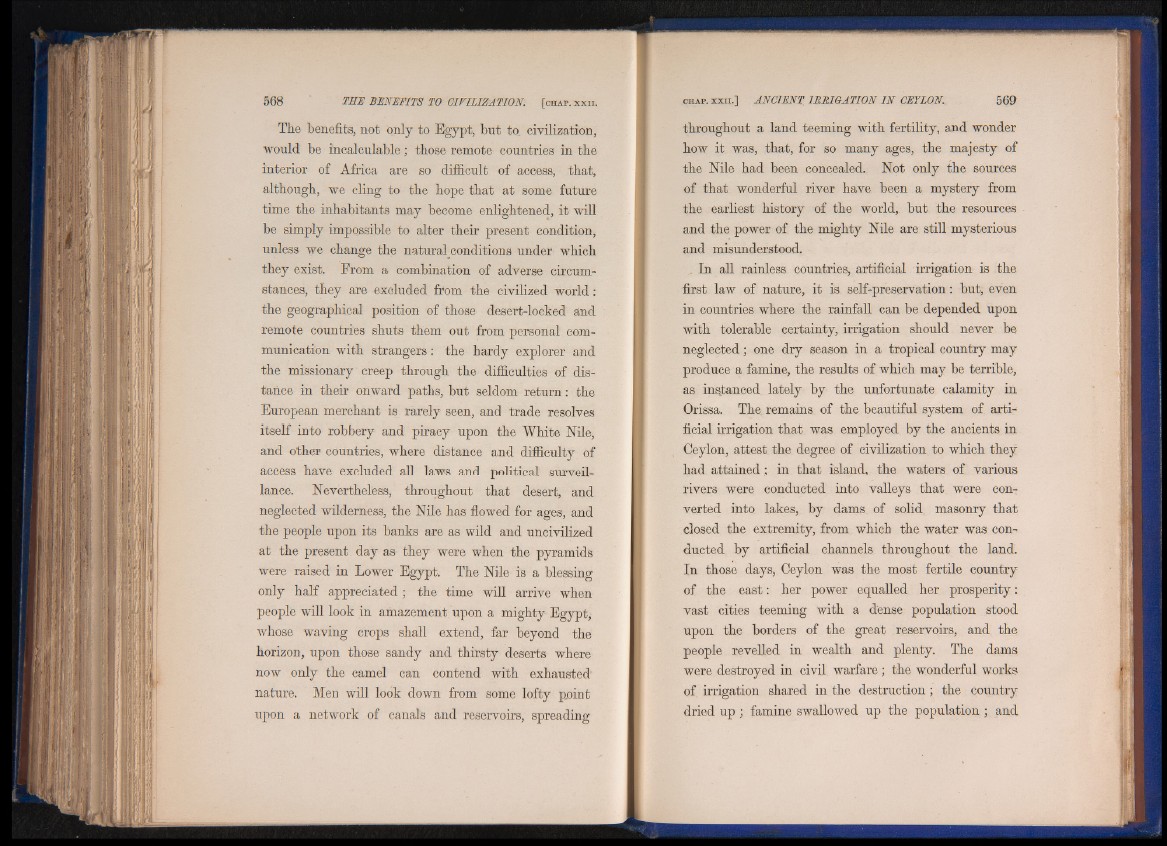
The benefits, not only to Egypt, bnt to civilization,
would be incalculable ; those remote countries in the
interior of Africa are so difficult of access, that,
although, we cling to the hope that at some future
time the inhabitants may become enlightened, it will
be simply impossible to alter their present condition,
unless we change the natural conditions under which
they exist. From a combination of adverse circumstances,
they are excluded from the civilized world :
the geographical position of those desert-locked and
remote countries shuts them out from personal communication
with strangers : the hardy explorer and
the missionary creep through the difficulties of distance
in their onward paths, but seldom return : the
European merchant is rarely seen, and trade resolves
itself into robbery and piracy upon the White Nile,
and other countries, where distance and difficulty of
access have excluded all laws and political surveillance.
Nevertheless, throughout that desert, and
neglected wilderness, the Nile has flowed for ages, and
the people upon its banks are as wild and uncivilized
at the present day as they were when the pyramids
were raised in Lower Egypt. The Nile is a blessing
only half appreciated ; the time will arrive when
people will look in amazement upon a mighty Egypt,
whose waving crops shall extend, far beyond the
horizon, upon those sandy and thirsty deserts where
now only the camel can contend with exhausted
nature. Men will look down from some lofty poiut
upon a network of canals and reservoirs, spreading
throughout a land teeming with fertility, and wonder
how it was, that, for so many ages, the majesty of
the Nile had been concealed. Not only the sources
of that wonderful river have been a mystery from
the earliest history of the world, but the resources
and the power of the mighty Nile are still mysterious
and misunderstood.
. In all rainless countries, artificial irrigation is the
first law of nature, it is. self-preservation: but, even
in countries where the rainfall can be depended upon
with tolerable certainty, irrigation should never be
neglected; one dry season in a tropical country may
produce a famine, the results of which may be terrible,
as instanced lately by the unfortunate calamity in
Orissa. The. remains of the beautiful system of artificial
irrigation that was employed by the ancients in
Ceylon, attest the degree of civilization to which they
had attained; in that island, the waters of various
rivers were conducted into valleys that were converted
into lakes, by dams of solid masonry that
closed the extremity, from which the water was conducted
by artificial channels throughout the land.
In those days, Ceylon was the most fertile country
of the east: her power equalled her prosperity:
vast cities teeming with a dense population stood
upon the borders of the great reservoirs, and the
people revelled in wealth and plenty. The dams
were destroyed in civil warfare; the wonderful works
of irrigation shared in the destruction; the country
dried up ; famine swallowed up the population ; and